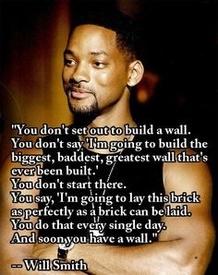I'm stuck

csibiglia
Posts: 6 Member
I started working out and eating right in sept 2015 I started at 330 and now I'm stuck at 269 for just over two months. For some reason I've hit this plague and I don't know how to get out of it. I tried changing up my work out from cardio and weight every day to cardio only 2 times a week and cardio and weights like normal 3 times a week. I haven't seen a change...others seem to say they can see a differance and notice but not sure why because the scale doesn't say any different . I tried changing my calorie intake by adding more calories just to shock my body for about 4 days I ate what ever and how ever I wanted. I went back to eating between 1200 -1500 calories and still no change. I don't know why to do to kick this plateau does anyone have any suggestions?
0
Replies
-
Have u tried hiit as cardio 2 to 3 times a week amd see if u get any changes from that0
-
Same thing happened to me after I lost 60 lbs. Stay the course & ride it out. Your body is simply adjusting. You should notice you're still losing inches. Once the plateau breaks, you should drop quite a few lbs.0
-
Sounds like you probably need to tighten up your logging. How do you measure your calorie intake? How do you measure your exercise calories and how much, if any of them, do you eat back? Are you making sure the entries you choose from the database are 100% accurate and avoiding homemade/generic recipes located in there?0
-
It's most likely you're eating more than you think you are. It's very easy to do.0
-
1. If you aren't already, be sure that you're logging everything. Sometimes people forget about things like veggies, drinks, cooking oils, and condiments. For some people these can add up to enough to halt your weight loss progress.
2. Consider buying a food scale if you don't already have one. They're about $10-$20 dollars in the US and easily found at places like Amazon, Target, and Walmart. Measuring cups and spoons are great, but they do come with some degree of inaccuracy. A food scale will be more accurate, and for some people it makes a big difference.
3. Logging accurately also means choosing accurate entries in the database. There are a lot of user-entered entries that are off. Double-check that you're using good entries and/or using the recipe builder instead of someone else's homemade entries.
4. Recalculate your goals if you haven't lately. As you lose weight your body requires fewer calories to run. Be sure you update your goals every ten pounds or so.
5. If you're eating back your exercise calories and you're relying on gym machine readouts or MFP's estimates, it might be best to eat back just 50-75% of those. Certain activities tend to be overestimated. If you're using an HRM or activity tracker, it might be a good idea to look into their accuracy and be sure that yours is calibrated properly.
6. If you're taking any cheat days that go over your calorie limits, it might be best to cut them out for a few weeks and see what happens. Some people go way over their calorie needs without realizing it when they don't track.
7. If you weigh yourself frequently, consider using a program like trendweight to even out the fluctuations. You could be losing weight but just don't see it because of the daily ups and downs.
8. Some people just burn fewer calories than the calculators predict. If you continue to have problems after 4-6 weeks, then it might be worth a trip to the doctor or a registered dietitian who can give you more specific advice.1
This discussion has been closed.
Categories
- All Categories
- 1.4M Health, Wellness and Goals
- 398.5K Introduce Yourself
- 44.7K Getting Started
- 261K Health and Weight Loss
- 176.4K Food and Nutrition
- 47.7K Recipes
- 233K Fitness and Exercise
- 462 Sleep, Mindfulness and Overall Wellness
- 6.5K Goal: Maintaining Weight
- 8.7K Goal: Gaining Weight and Body Building
- 153.5K Motivation and Support
- 8.4K Challenges
- 1.4K Debate Club
- 96.5K Chit-Chat
- 2.6K Fun and Games
- 4.8K MyFitnessPal Information
- 18 News and Announcements
- 21 MyFitnessPal Academy
- 1.5K Feature Suggestions and Ideas
- 3.2K MyFitnessPal Tech Support Questions




